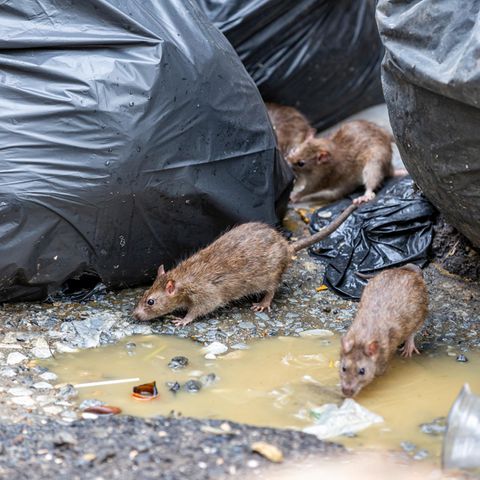One month after the amnesty for separatists came into force, more and more “Catalanistas” are returning to Spain. An important leader of the movement is making a loud statement shortly after crossing the border.
The influential Catalan separatist leader Marta Rovira is back in Spain after a good six years of exile in Switzerland. The 47-year-old crossed the border between France and Catalonia in a car with four comrades.
Shortly afterwards, she gave a combative speech in Cantallops: “We have come back to finish what we left unfinished,” she shouted to the cheers of many supporters and comrades who carried a banner reading “Freedom for Catalonia”.
Rovira, who despite her exile has remained Secretary General of the Republican Left (ERC) that governs Catalonia for all these years, said she had “often dreamed of this moment”. The various representatives of the movement must act together again. This is the only way independence can succeed. “But this democratic and unstoppable movement will never resort to violence to defend its ideas,” she said.
Now the return of Carles Puigdemont is eagerly awaited. However, this is proving more complicated because the judge in charge does not want to grant the former regional president immunity from prosecution and has maintained the arrest warrant against the 61-year-old.
His argument: Puigdemont was guilty of embezzlement by using public funds in the 2017 independence referendum, which was declared illegal. This also harmed the EU’s financial interests. The amnesty law does not provide protection from prosecution in these cases, the judge said.
Puigdemont assured that he would return anyway. After the recent regional elections in May, he wanted to take part in the debates in the parliament in Barcelona on the formation of the new government and apply for the post of regional president.
The socialists of Spanish Prime Minister Pedro Sánchez and leading candidate Salvador Illa won the most seats in the election on May 12, but failed to gain an absolute majority. But the various parties supporting independence also failed to form a governing majority for the first time since 1980. Sánchez viewed this as a success of his appeasement policy. However, if there is no new government in Barcelona by August 26, a new election will have to be called.
Under Puigdemont’s aegis, Catalonia was plunged into chaos in October 2017 following the referendum and a decision to secede from Spain. The then conservative central government placed the region under compulsory administration. Puigdemont was able to flee into exile with several of his comrades and currently still lives in Belgium.
Source: Stern
I have been working in the news industry for over 6 years, first as a reporter and now as an editor. I have covered politics extensively, and my work has appeared in major newspapers and online news outlets around the world. In addition to my writing, I also contribute regularly to 24 Hours World.




